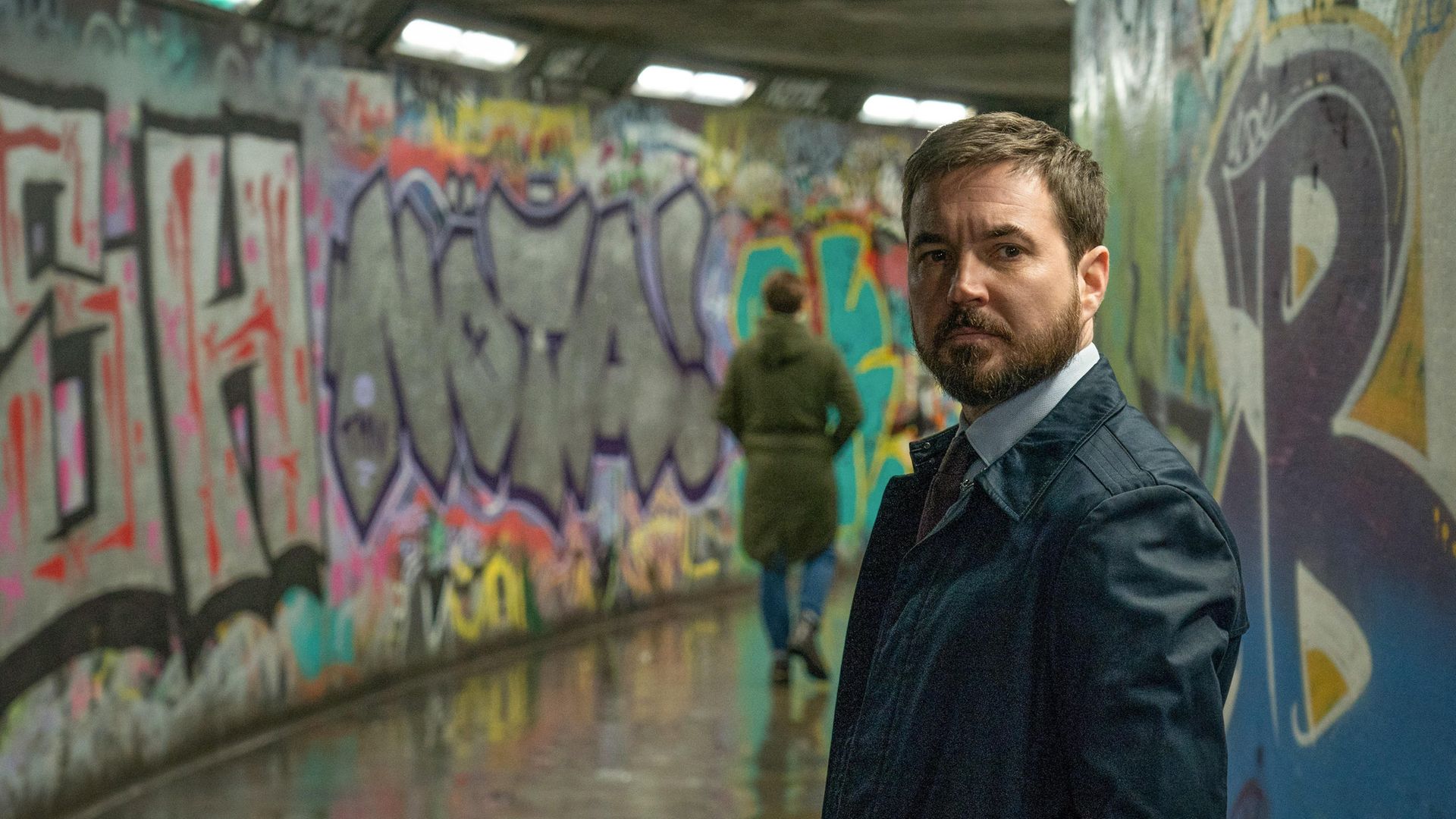
New columnist MEGAN NOLAN on the BBC’s cult series and its world of good cops and bad cops.
I moved to England in 2015, when Line of Duty, the beloved BBC drama about an anti-corruption police unit named AC-12, was still dithering between cult fan favourite and mainstream national watercooler conversation. I had never come across it.
A friend of mine once put on an indecipherable accent and made a crack about “bent coppers” which went completely over my head, though I laughed along uncertainly.
Eventually I watched three seasons in quick succession on a battered old Dell laptop during a spell of depression, and now I’m as hooked as anyone. The current and sixth season is going down especially well, punctuating this arduous neverending season before life returns to a version of normality.
It’s a strange show, really, when you regard it from outside the bubble of fandom. I’ve tried to turn boyfriends and pals onto it who think I’m mad, who can’t get past the slightly strip lit BBC production values, or the meat-and-two-veg dialogue which is sometimes comical. And you do have to wonder how knowingly they write it that way – beloved Superintendent Ted Hastings, moral pinnacle, spewer of catchphrases, is surely winking at the audience just a little when he is told not to bother fighting old battles, and replies: “The name’s Hastings, ma’am, I’m the epitome of an old battle.”
In any case I remain a fan, not because I think it’s the most sophisticated or brilliant television, but because of how neatly its drama is parcelled out per hour. Its shameless proclivity for cliffhangers and offensively stinky red herrings make for sumptuous Sunday night experiential watching of the kind I almost never bother with any more, the sort that makes you text “Ooooh” to your mates.
This very neatness, though, the one which makes it such an appealing show, has been jarring me a little bit lately. For those unfamiliar with it – or indeed those of us who instantly forget the details after finishing an episode – what takes place essentially is this: each season involves a guest-starring adversary being investigated.
There is a conspiracy of corruption between high-ranking police officials which, through the six seasons, is being diligently unravelled by the defined good guys of AC-12. Sometimes the guest adversary is discovered to be part of it, sometimes not.
Mystery hangs over AC-12 itself, where some of the good guys turn out to be bad after all. The ambiguity of the individual anti-corruption officers’ providence does not contradict but feed into the moral logic of the show – there are only bad and good sides, it’s only that sometimes one can pretend to be the other, can hide their true hearts. Once unveiled, the fake good guys practically snarl and cackle, Jekyll-like, eyes going dead and cunning instantly.
The backdrop of a pervasive network of corruption would seem on the face of it to contradict the “few bad apples” idea about policing, but really works to enforce. In fact it valorises it, making the apples delightfully, theatrically poisonous instead of merely mushy.
There may be a network of them, and it may take some time, but by the logic we are following, if the good guys have enough time and resources, they will one day succeed in entirely wiping out the deeply embedded sources of corruption in policing. Who knows if we’ll ever get to it, but there is in theory a promised land in which only good police remain and the bad have all been rooted out. Here, the bad apples are finite, instead of cultivated, bred, and inherent.
It is true certainly that there are shocking incidents of police corruption on the sort of operatic scale that television works within, but most of what takes place, and what is most insidious, is not organised and malicious and involving a defined number of psychopaths.
Instead, it is a bottomless, systemic culture in which far too many police officers tolerate and protect one another, even and especially when they know what they are tolerating is wrong. I am not referring to a handful of misdeeds but rather to many more serious allegations – including those to do with sexual and violent crimes –against active officers which have previously gone uninvestigated and allowed those accused to continue to work unfettered.
Loyalty is often thought of as a wholly positive trait, but its dominance amongst police officers is a terribly dangerous one. I say none of this to criticise Line of Duty for not according with the more widespread and mundane realities of corruption. Television is television and I don’t come to this kind for its grasp on facts. Rather I am interested in the way we watch things, how the actual, crucial matters of our culture get digested and in what manner we receive them.
It is a strange time to watch entertainment about the police. In the summer which followed George Floyd’s death in Minnesota at the hands of the police officer Derek Chauvin (currently being tried for murder), the sitcom Brooklyn Nine-Nine was in an awkward position.
Set in a diverse police precinct, the show had often made self-aware jokes about the odious state of the American justice system, enough to keep most of its viewers happy.
Many fans, like myself, would consider themselves highly critical of policing but were happy to chuckle along at these particular versions of cops. After all they inhabited a dream world where police have near unilateral benevolence and whose worst trait might be laziness or inconsequential incompetence rather than sadism and enjoyment of readily abused power.
But after the summer’s grief and protests, that balance felt off-kilter and members of its cast made donations to Black Lives Matter and assured viewers they would be taking this tonal shift into account for the next season. I have no idea what that might look like – I am, frankly, a little bit terrified of what a mawkish, self-aware, apologetic police sitcom might look like.
If Brooklyn Nine-Nine was a sort of white-washing of the reality of policing, casting it as fun and benign, then Line of Duty functions somewhere on the other end of the spectrum, showing us the bad apples writ so large and so specific and so ultimately removable, striking in this moment when many of us are acutely attuned to the wearying ordinariness of police failings.
Sometimes we take that which is frightening and unspeakable in life and make it edifying and comic, sometimes we make it more concretely malign than it really is, and both are ways to render something bearable which in truth is not.
What do you think? Have your say on this and more by emailing letters@theneweuropean.co.uk
Warning: Illegal string offset 'link_id' in /mnt/storage/stage/www/wp-includes/bookmark.php on line 357
Notice: Trying to get property 'link_id' of non-object in /mnt/storage/stage/www/wp-includes/bookmark.php on line 37







